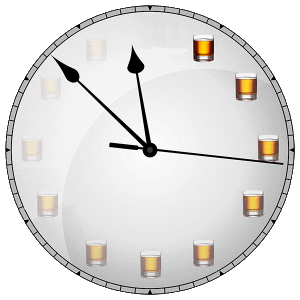 Alcohol is strong stuff. It affects our senses, our judgment, and our physical responses. Moreover, there’s no antidote for its effects. Not coffee, not a cold shower, not even sleep. Only time will dissipate the effects of impairment.
Alcohol is strong stuff. It affects our senses, our judgment, and our physical responses. Moreover, there’s no antidote for its effects. Not coffee, not a cold shower, not even sleep. Only time will dissipate the effects of impairment.
And that’s fine, as long as you allow for alcohol to leave your system before you get behind the wheel. In many cases, after an evening of moderate drinking, you’ll be good to go the next day. If you have an ignition interlock in your vehicle, then your blood alcohol concentration (BAC) should be back to zero, and you can start up easily.
But not always. There are times when it takes more than an overnight to get your head clear again. If you drink a great deal, you might still have enough alcohol in your system the next day to register on your ignition interlock – enough even to register as a “fail.”
Here’s why. Provided you’ve stopped drinking, it takes your body about one hour to break down 10ml of alcohol. A standard shot of spirts is 10 ml, a pint of beer 20 or 30 ml, depending on the strength.
If you’re partying hard, and have, say, four shots of whiskey, each followed by a pint of craft beer, that’s about 120 ml of alcohol, perhaps more.
So you stop drinking at midnight, roll into bed at one (having taken a taxi home, of course). The next morning you’re showered, dressed and in your car at 8am. You blow into your ignition interlock and…
The screen says .04. Fail. You’ve only had 8 hours to dissipate 12 hours’ worth of alcohol.
Before your ignition interlock, you might not have paid attention to morning-after impairment. With the device, it’s vital that you do.
Remember, only time will reverse the effects of alcohol. That time will vary depending on your sex, weight, age, and the state of your liver. So never get behind the wheel if you think you might still have alcohol in your system. If you do, your ignition interlock will be the first to let you know.
